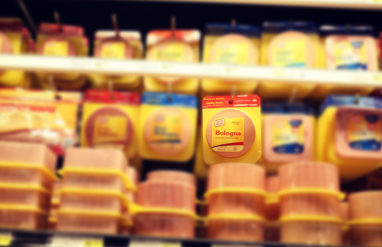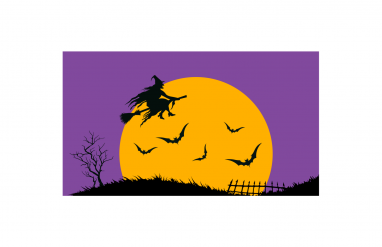Romaine, arugula, and iceberg lettuce are all ingredients that likely spring to mind when you hear the word salad. These healthy leafy greens are generally what to expect when you’re asked “soup or salad” at a restaurant. But there are other foods with salad in the name that you’d probably be surprised at receiving if you opted for a salad starter: potato salad, pasta salad, or chicken salad.
The world of salads is wide—much wider than Spongebob’s definition of a dish made by taking the buns, patties, and cheese off of a Krabby Patty and just serving up the lettuce and tomato. If you, like Spongebob, are confused by what makes a salad, well, a salad, then you can put all the blame on the origin of the word itself.
What is a salad?
The word for salad didn’t start as a term for a bowl full of leafy greens. Salad originally comes from the same Latin root, sal, that gives us salt. In fact, there’s a direct link from the Latin verb salāre, based on the noun sal and meaning “to salt,” and today’s salad.
Salt is hardly the main focus of salads nowadays, of course, whether you’re talking about a bowl of lettuce, a wedge salad, or a potato salad. One definition of salad is “a usually cold dish” made with vegetables and “covered with a dressing and sometimes containing seafood, meat or eggs.” This is likely the image of a salad that you think of when you hear the term.
Yet there’s another definition that’s relevant to the “is potato salad a salad” debate. In a broader sense, a salad is defined as a dish made up of cut meat, seafood, eggs, pasta, or fruit that’s mixed with a dressing and served cold. Hence potato salad, chicken salad, and pasta salad.
The link between salad and potato salad
If you feel like the two definitions of salad—one focused on greens, the other a more catch-all term—are incongruous, then consider the origin. The etymology of salad means there’s a quite broad span of food dishes that fall under the salad category.
First consider salt, the linchpin that connects your chopped green salad to your potato salad. Salt and other seasonings are added to both to boost the flavor. Then there’s the dressing side of the salad definition. You might add ranch dressing or blue cheese to your wedge salad, while the dressing in potato salad is centered around mayonnaise that holds it together (more on that later).
Finally there’s temperature. Both definitions specify that salad is served cold—though, this being the English language, there are exceptions like a bacon salad with a warm vinaigrette or a salad made with leafy Romaine that’s been quickly charred on the grill.
What about coleslaw and other questionable salads?
Potato salad isn’t the only dish that often falls under the salad category that might make some people scratch their heads. There’s also macaroni salad, seafood salad, and tuna salad, to name a few. Basically anything that could be found in a chilled self-serve salad bar makes the cut—including one dish that lacks an explicit salad in the name but is sometimes in the same grouping: coleslaw.
All of the above are what fall into what are called bound salads. These are classified as having a binding dressing that holds everything together (mayonnaise is a common binder in these salads). This category is what puts coleslaw into the salad category: coleslaw comes from the Dutch word koolsla, which means cabbage salad.
Bound salads are also what people are talking about when they refer to dessert salads like jello salad and ambrosia. Neither of these have lettuce, and it’d be a stretch to say they carry a whole lot of nutritional value. They are, however, delicious and are technically (at least from an etymology standpoint) salads: both are composed of a mix of cold ingredients that are held together and seasoned with a dressing, in this case, whipped cream.
The definition for salad also adapts well to figures of speech, such as William Shakespeare’s turn of phrase salad days in his play Antony and Cleopatra. Salad days are those defined by being green with youthful inexperience. With the right definition in hand, your salad days of questioning the provenance of potato salad and its ilk can be behind you.











